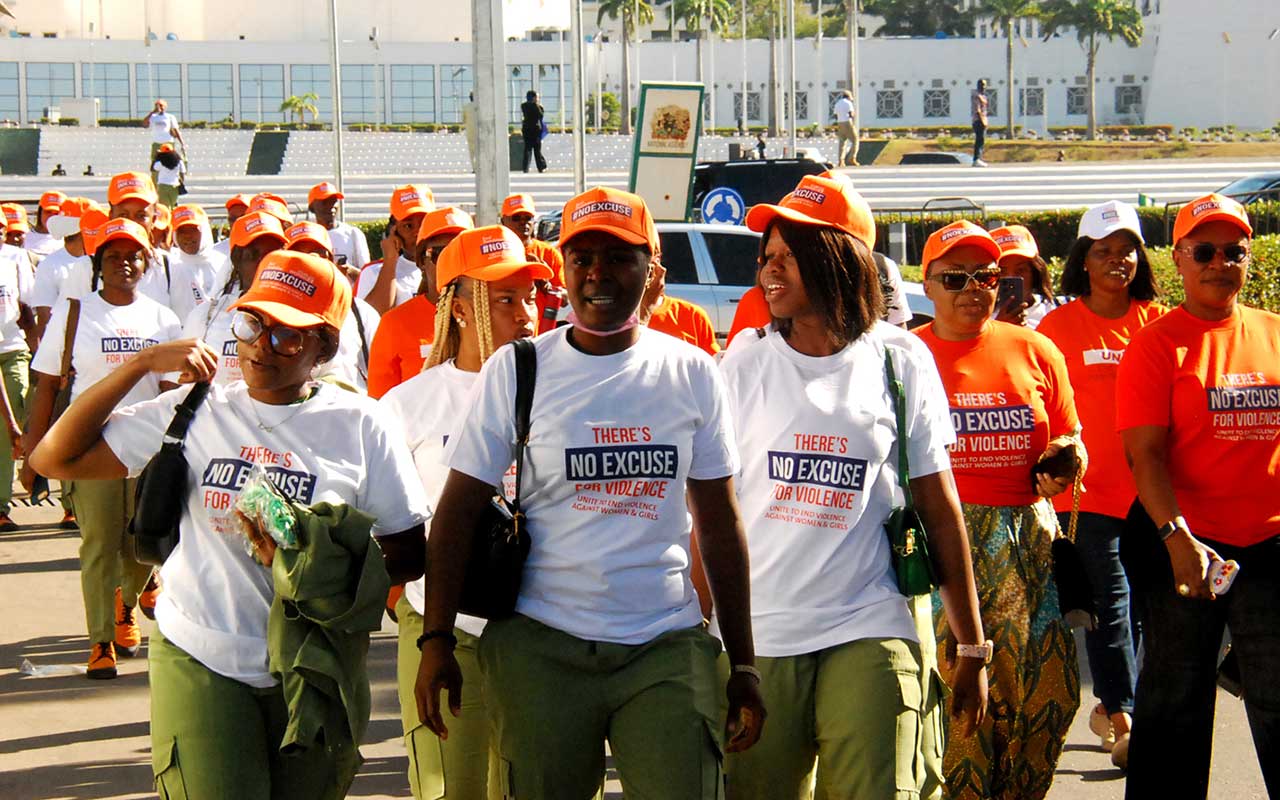
PHOTO: LUCY LADIDI ATEKO
The 16 Days of Activism Against Sexual and Gender-Based Violence, (SGBV), also known as the International Day for Elimination of Violence Against Women is observed annually from November 25 through December 10 across the world.
[ad]
In Nigeria, it serves as a critical platform for raising awareness and advocating for the rights of survivors despite ongoing challenges and implementation gaps.
It’s been twenty-five years of marking the 16 days of activism and observers say the campaign has catalysed significant progress in various areas, despite ongoing challenges in Nigeria.
A notable advancement pointed out by gender experts has been the strengthening of legal frameworks to combat sexual and gender-based violence (SGBV). The Domestic Violence Act of 2015 and the Violence Against Persons (Prohibition) Act of 2015, (VAPPA), mark significant milestones in providing victims with legal protection and avenues for justice even as the states have also adopted their own VAPPA laws to align with federal regulations, contributing to a more concrete effort against SGBV.
Social inclusion expert, Sussan Ihuoma, opined that the adoption of the VAPPA across states in Nigeria is one feat worthy of highlighting in the SGBV fight. “Nigeria has made notable progress in addressing SGBV including the adoption of the VAPP act in many states, improved awareness through campaigns, and the establishment of Sexual Assault Referral Centers (SARCs), to support survivors.
Collaborative efforts among stakeholders and disability-inclusive approaches have also strengthened access to justice and survivor support,” Ihuoma said.
She however noted that challenges like low prosecution rates, cultural stigma, and funding gaps persist. While gains have been made, eliminating SGBV requires sustained action and systemic change across all sectors.
According to the UN, every 10 minutes a woman is killed making violence against women and girls one of the most prevalent and pervasive human rights violations in the world.
Country Representative of the United Nations Office on Drug and Crime, (UNODC), Cheikh Toure, said staggering statistics on SGBV reflects the urgency and the need for collective action to clamp down on the what he described as an ‘epidemic that knows no border’ shattering families and devastating communities.
“Globally, almost one in three women has been subjected to physical and/or sexual intimate partner violence, non-partner sexual violence, or both, at least once in their life. For at least 51,100 women in 2023, the cycle of gender-based violence ended with one final and brutal act, their murder by partners and family members”, he pointed.
[ad]
The 16 Days of Activism has sparked greater public discourse surrounding SGBV, leading to increased awareness about the issue. Government agencies, non-governmental Organisations, (NGOs), and community organisations have utilised this period to conduct educational campaigns, workshops, and advocacy events.
These 25 years have seen evolving change bringing on board social media campaigns playing key roles and reaching millions of diverse audiences, especially young Nigerians with various enlightenment campaign allowing for broader reach and engagement fostering cultural change regarding gender norms.
Nigeria has seen the establishment and strengthening of various support systems for survivors in such safe houses, hotlines, SARCs, and counseling services have emerged to provide immediate assistance to victims. The National Agency for the Prohibition of Trafficking in Persons, NAPTIP, which is now the implementer and enforcer of the VAPPA alongside various NGOs, have expanded their services to cater to the needs of those affected by SGBV.
Over the years, the 16 days activism has breaded collaboration and multi-sectoral approaches hence, efforts to combat SGBV have increasingly involved collaboration among various stakeholders, including government bodies, civil society organisations, and international partners.
This multi-sectoral approach has fostered the sharing of resources, knowledge, and strategies to address the complexities of SGBV, including underlying socio-economic factors. Nigeria is witnessing increase focus on data collection and research regarding SGBV.
NGOs like Invictus Africa are charting pathways in data driven SGBV campaign with it yearly Womanity index report releases. This and other such findings have boost progress regarding evidence-based campaign and research regarding SGBV.
The need for accurate data has driven initiatives to conduct surveys and studies, providing a clearer understanding of the prevalence and types of violence experienced by different demographics as data is crucial for informing policies and programmes aimed at prevention and support for survivors.
[ad]
Challenges like cultural stigmas or misguided religion surrounding SGBV often impede reporting and seeking help by victims contributes to underreporting. Enforcement of laws remains inconsistent, with many cases of SGBV going unpunished especially when crimes are committed by close relatives such as femicide.
Another challenge to the SGBV campaign is funding for programmes. Limited funding translates to poor campaign programme sustainability. To engender behavioural change within communities bringing about the needed shift in societal attitudes toward GBV, these campaigns remain fundamental.
Minister of Women Affairs, Imaan Sulaiman-Ibrahim while reiterating government’s commitment, said, “the fight against GBV is a battle for the soul of our society, which we must win. Therefore, this 2024 16 Days of Activism Against Gender-Based Violence will be a rallying moment to unite our efforts, amplify our voices, demand action, and strengthen our resolve to end violence against women and girls.”
While Nigeria has made notable strides in raising awareness and establishing frameworks to combat SGBV, continuous efforts are necessary because the 16 Days of Activism serves as a potent reminder of the work to protect victims and hold perpetrators accountable.
[ad]


